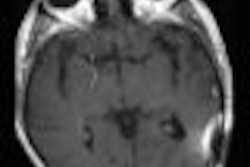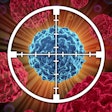CHICAGO - The director of the National Cancer Institute (NCI) said that flat federal funding for cancer research during the Bush Administration since 2004 will force the closure of at least two projects aimed at developing better cancer imaging technology.
In a press briefing on Friday at the 2008 annual meeting of the American Society of Clinical Oncology (ASCO), Dr. John Niederhuber said budget restrictions have required the NCI to review its ongoing programs and drop some "programs from our portfolio." In particular, funding supplements for Imaging Response Assessment Teams will not be renewed, according to NCI officials.
The development of Imaging Response Assessment Teams for oncology was aimed to advance the role of imaging in assessing response to therapy and increase the application of quantitative anatomic, functional, and molecular imaging end points in clinical therapeutic trials.
The program provided funding to NCI-designated Comprehensive Cancer Centers to establish the teams as formal shared resources. The project was designed to strengthen clinical collaboration between imaging scientists and oncologic investigators, integrate teams into the protocol planning process of clinical trial design, and facilitate an ongoing exchange of ideas to advance the role of imaging as a biomarker in the oncology community.
Also eliminated from the NCI portfolio was a program to develop contrast imaging agents and enhancers. The program hoped to expedite and facilitate the development of promising investigational imaging enhancers or molecular probes from the laboratory to investigational drug status.
Through the program, developers of promising diagnostic imaging agents or probes could have received access to NCI preclinical development resources in a manner designed to remove the most common barriers between laboratory discoveries and investigational drug status.
A grim outlook
Niederhuber added that the NCI's funding outlook is grim through fiscal-year 2011 -- unless supplemental appropriations are provided by Congress and approved by the next administration. However, he said that from his perusal of the major candidates for president, there didn't seem to be an overwhelming interest in cancer research.
He said the NCI's appropriation has been steady at $5.8 billion per year since 2004. That actually is a funding cut of about $500,000 in 2008 because the cost of biomedical research has increased by 3% to 3.5% per year.
The funding shortfall is already having an impact on researchers in the field. Dr. Julie Gralow, chair of the ASCO communications committee, said the budget woes have forced Southwest Oncology Group (SWOG), the cooperative cancer research group to which she and her colleagues at the University of Washington in Seattle belong, to cut its committees on brain cancer, sarcoma, and melanoma. The committees were eliminated last year in response to an NCI warning that SWOG's budget would be cut by 10% to 20%.
"Our budget actually remained flat, but with inflation we still needed to make those cuts," Gralow said at the press briefing.
Niederhuber also indicated that the NCI planned to eliminate or reduce funds for other projects, including the following:
- Integrating Aging and Cancer Research -- Funding will not be renewed.
- Transdisciplinary Tobacco Use Research Centers -- Funding will be reduced.
- Long-Term Cancer Survivors research -- Funding will be reduced.
- Interdisciplinary Research Teams for Molecular Target Assessment -- Funding will be eliminated.
- Cancer Diagnosis Program using breast and prostate cancer tissues resources -- Will remain unfunded or will be eliminated.
By Edward Susman
AuntMinnie.com contributing writer
June 1, 2008
Copyright © 2008 AuntMinnie.com



















